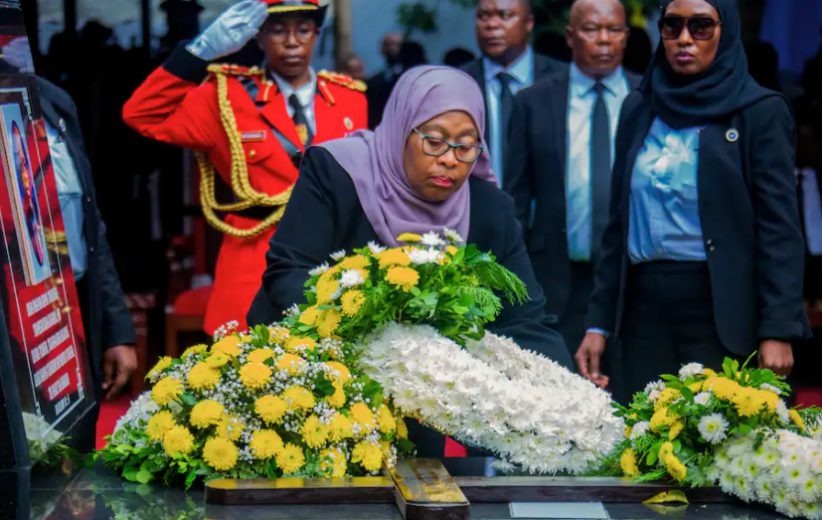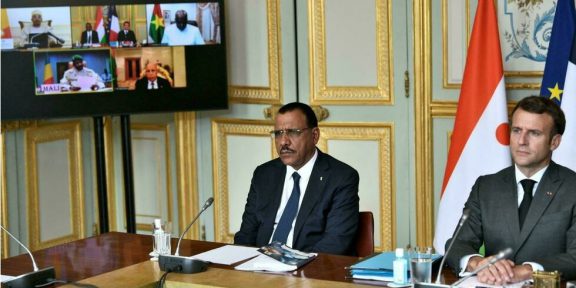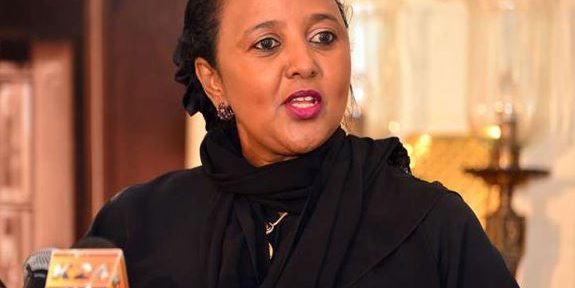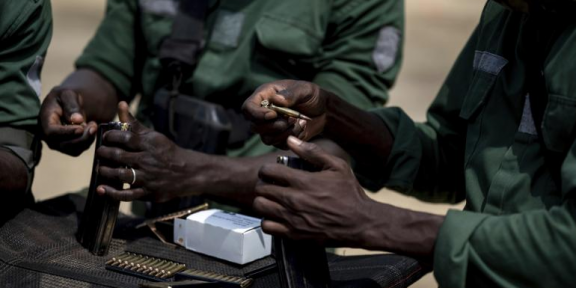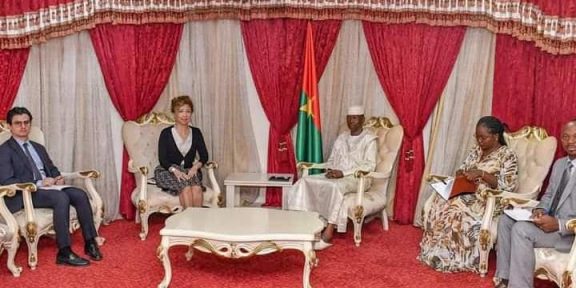NAIROBI — With five words — “Let us have a stance” — Tanzania’s new president in a speech on Tuesday appeared to welcome a new era in which the country’s government acknowledges the pandemic and in which civil rights might be broadened, fueling both hope and skepticism that she will roll back some of her predecessor’s policies.
Samia Suluhu Hassan took over last month when John Magufuli died of complications from heart disease. He was an ardent pandemic denialist, and many of his critics allege that he, like thousands in Tanzania, died from the virus even though the government has released no data on its spread since last April.
Health officials outside of Tanzania have warned that high percentages of recent cases among Tanzanian travelers indicate the country has been experiencing an uncontrolled outbreak, including of the most mutated of all new variants found by researchers. The country has not implemented any containment measures.
Expectations are high for Hassan, who was formerly the vice president, to reverse course on Magufuli’s health policies, which included the rejection of vaccines and led to threats of isolation from the international community. Opposition supporters and rights activists also hope Hassan will try to rebuild Tanzania’s democratic underpinnings, which they say Magufuli nearly obliterated during his five years in power. Magufuli had shut down newspapers and websites, created financial barriers to starting new publications, and jailed journalists and dissidents.
In Tuesday’s speech, Hassan gave one indication that she aimed to open up some freedoms by calling for a reinstatement of the licenses of media houses that had been banned.
“We should not ban the media by force. Reopen them, and we should ensure they follow the rules,” she said.
Those who suffered under Magufuli’s crackdowns on free speech and opposition politics say Hassan’s words won’t mean much unless backed up by actions.
“We need quick action, especially when it comes to the pandemic,” said John Mbatia, chairman of NCCR-Mageuzi, one of Tanzania’s opposition parties. “The three most important people in government were present at the speech this morning, and no one had a mask on. I still think they are not serious about this pandemic.”
That kind of symbolic indication of intent would go a long way, he said. It was only one of numerous indicators in Hassan’s speech that gave critics pause. On the issue of media freedoms, for instance, Hassan’s caveat that media must “follow the rules” caused some to doubt whether free speech was really in the offing.
Those rules are highly restrictive, said Muthoki Mumo, a sub-Saharan Africa representative at the Committee to Protect Journalists. If media houses can reopen but not report on issues of their choosing, the move would be hollow, she said — especially when there are still journalists in jail and others who have been missing for years, including Azory Gwanda, who reported on a string of police-related killings.
“There is a big problem in what she said because the laws of the land, many of them are deeply problematic for the media,” she said. “When questions such as what happened to Azory Gwanda are still hanging in the air, there is still a question mark.”
Within Hassan and Magufuli’s CCM, or Revolutionary Party, some were more effusive in their welcoming of the change of tone. The CCM has been in power for decades and Magufuli, critics alleged, had created a more sycophantic kind of politics, in which dissent from within his party was unheard of.
In death, as in life, Tanzania’s Magufuli polarized his country
There were some exceptions. Hamisi Kigwangalla is an outspoken CCM member of parliament and used his training as a doctor to underpin his pleas for greater transparency and action against the coronavirus under Magufuli. On Tuesday, after Hassan’s speech, he said he felt vindicated by her words.
“I find the statement by her excellency very much pleasing and forward looking,” he said. “In the first place, we need to change our direction from withholding information and now starting to issue statistics and conduct research on so many facets of the pandemic here in Tanzania and move in the direction of vaccination.”
But Hassan did not provide any such details in her speech, she just announced plans to create an expert coronavirus task force to advise her government on the pandemic.
Two of Magufuli’s fiercest critics, journalist and activist Maria Sarungi Tsehai, and opposition leader Tundu Lissu, said they would consider Hassan an extension of Magufuli’s rule until proven otherwise.
“What we really need is systemic change,” said Sarungi, whose Kwanza TV station was shut down twice under Magufuli. “Presidential decrees became laws of the land. As long as that stays the case, we’ll be at the mercy of whoever is in charge.”
Deeper democratic reform, which includes the writing of a new constitution, is part of what Lissu is waiting to see before he returns to Tanzania permanently. He went into self-exile in Belgium after a bruising presidential campaign against Magufuli last year in which he was repeatedly arrested. In 2017, during a previous campaign, he was shot multiple times in what he says was a politically motivated assassination attempt.
“Now that she is the president, she must tell us, she must tell the world who was behind these assassination attempts against myself, who was behind the killings of villagers, of fisherfolks, of peasants and pastoralists around our national parks, who was behind the abduction and disappearance of political opponents and media critics,” he said. “If she does that, I will feel very comfortable and return home.”
Source: CNN News

